Not Your Keys – Not Your Coins: What Are The Cryptocurrency Wallets And How To Safeguard Your Digital Assets

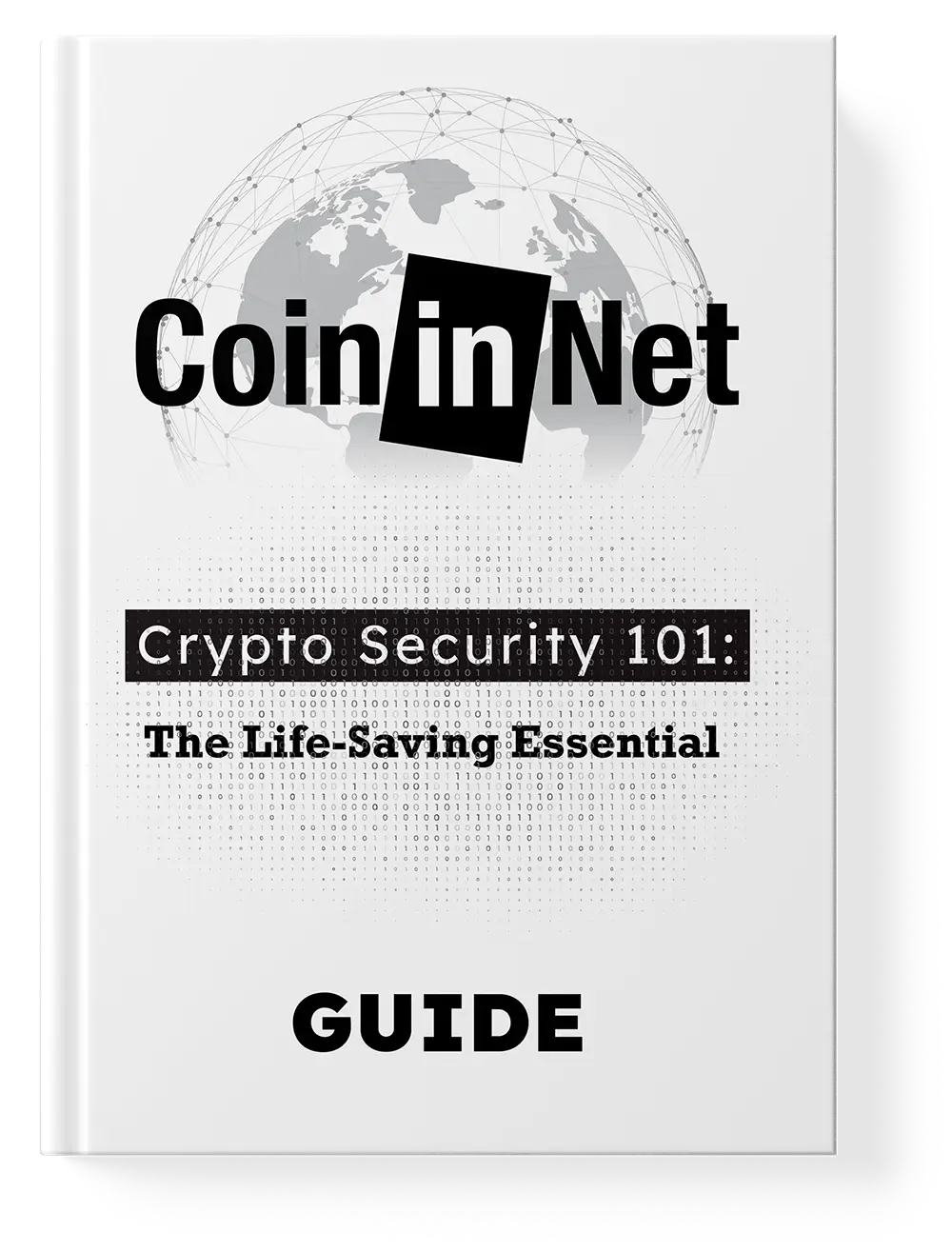
Have you ever heard the saying, “Not Your Keys – Not Your Coins!” – the fundamental principle of crypto security? If you thoroughly understand this single statement and learn how to protect your Private Keys (or rather the Seed Words) of your cryptocurrency wallet in the best way possible, that’s all there is to it. We wouldn’t have to create this website. After all, if you happen to lose it, you lose it all, once and for all. So, it doesn’t even matter how much time, effort, and education you’ve invested in learning crypto and choosing those “blue chips.” Goodbye, crypto!
However, too many people in the crypto space continue to neglect the importance of taking it seriously. To be frank, you should treat it as seriously as making it your mission to implement all possible measures to safeguard this precious piece of data. And a well-selected hardware wallet can help you win this battle.
Cryptocurrency Wallets Explained: Your Key to Control
First and foremost, it’s crucial to demystify the common belief that cryptocurrencies are stored in a physical wallet. In reality, cryptocurrencies reside on a blockchain, a decentralized ledger. A crypto wallet functions as a secure gateway to access and manage these assets within the blockchain’s digital realm. Think of it as your key to the world of crypto, providing robust security measures for handling your digital assets on the blockchain.
Decentralization: The Heart of Blockchain
Blockchain’s core idea is decentralization. It functions as a digital ledger, recording transactions within blocks that are nearly immutable. This ledger is accessible to anyone in the network, making it almost impossible to manipulate or cheat the system.
Imagine it as a shared notebook. Instead of a single person holding the notebook, everyone has a copy. When someone writes something new, it gets added to all copies. This transparency thwarts tampering and censorship, a crucial trait in applications like cryptocurrencies and secure record-keeping.
Now, let’s delve into what a crypto wallet is and how it grants you control. There are two main types:
1. Custodial Wallets:
These are online wallets provided by exchanges or third-party service providers. While they offer convenience and easy accessibility, they can be vulnerable to hacking. It’s important to understand that with this type of wallet, you are not granted access to the Seed Words. This means you don’t have full control over your assets, as you would with non-custodial wallets. Ironically, these online services often use hardware wallets to secure the crypto, the same type of wallet you could use yourself.
Still, they are a vital part of the cryptocurrency world and can be very useful to buy and sell crypto. To enhance security, it’s advisable to choose a reputable provider and enable two-factor authentication. Never store larger amounts of your digital assets on custodial wallets, as they can be compromised or frozen.
The key takeaway here is “Not Your Keys, Not Your Crypto.” In custodial wallets, you don’t have full control. You can’t interact with Web 3 Apps (DApps) and they are subject to the provider’s terms.
2. Non-Custodial/Self-Controlled Wallets:
These wallets, both in software and hardware form, give you full control. While they offer robust protection, they require proper setup and backup.
Non-custodial wallets, grant you total control with a seed phrase. This set of words is generated during wallet creation and secures your wallet. However, this comes with increased security requirements for the user. Remember, never share your seed phrase with anyone because anyone who has your Seed Words can access your digital funds from anywhere in the world and manage them as if they were their own.
Any operation on the blockchain is irreversible. There is no instance to turn to or complaint to make if your funds are transferred from your wallet or stolen. There is no insurance or protection available other than the forethought and security measures you undertake.
The Role of a Crypto Wallet
Once again, it’s essential to understand that a crypto wallet doesn’t physically store your digital assets. Instead, it manages and provides access to your funds on the blockchain. The ownership of your assets depends on your possession of the private key associated with your public wallet address.
CRYPTO TOOLBOX
Public Wallet Address:
This is an alphanumeric string derived from your seed words that serves as a unique identifier for receiving cryptocurrency payments. It’s safe to share since it’s impossible to retrieve the Seed Words (or Private Keys) with it. It doesn’t reveal any sensitive or private information other than the transaction history and the amounts it holds. The only threat in sharing your Public Wallet Address arises if a malicious actor can link it to your physical address (for instance, when you reveal your IP) or your real name. Therefore, it is crucial to always exercise caution and discretion.
To hide your real IP address, always use a VPN or a DPN device when transacting with cryptocurrency.
Types of Non-Custodial Wallets
Non-custodial wallets offer various options:
b) Hardware Wallets (Cold Storage):
Considered the most secure option for protecting your crypto assets.
c) Hybrid Wallets:
A combination of hot and cold storage.
e) Paper Wallets:
Though seemingly secure, they have their drawbacks.
Hint:
For most users, including beginners, hardware wallets are the top choice. They keep your private keys offline and offer superior security.
How People Lose Their Cryptocurrencies?
There's Always Only One Reason (Except for Bad Decisions): They Lose The Seed Phrase!
But how..?!
Threat #1: Indulgence
Taking your investments lightly can lead to the loss of your assets. Make sure to treat your crypto investments with the respect they deserve. Even a small investment is not an excuse, as it can potentially grow into a significant sum. Often, this occurs because the crypto assets purchased weren’t worth much on the day of acquisition, and insufficient attention was paid to securing them. Taking your investments lightly often leads to the following traps:
Threat #2: Poor Backup
Approximately 31% of existing Bitcoin and other crypto assets, valued at billions, are considered ‘lost’ due to inadequate backup.
It’s hard to believe, but many people have lost access to their cryptocurrency assets simply because they forgot how and where they stored the wallet’s backup (aka Seed Words), or the copy of their Seed Phrase was damaged.
Threat #3: Inheritance Misconsideration
The other, quite popular reason for losing cryptocurrencies is the failure to provide instructions on how to access these digital funds for close individuals in case of an emergency.
This oversight can have serious consequences. Imagine a scenario where you hold a significant amount of cryptocurrency, and something unexpected happens to you, such as a medical emergency or an accident. If your family or trusted loved ones are unaware of how to access your crypto assets, these valuable funds might become inaccessible or lost forever.
In such situations, having a clear plan and instructions in place can be invaluable. You can create a document detailing the necessary steps to access your cryptocurrency, including information on your wallet, seed phrase, and any security measures. By sharing this information with a trusted individual, you ensure that your digital assets can be retrieved and managed according to your wishes during times of need. This simple precaution can provide peace of mind and protect your investments for the future.
Threat #4: Exploits, Scams, and Other Deceptive Tactics
The statistics mentioned earlier, which reveal what percentage of all crypto is considered lost, do not account for thefts and exploits. Yes, this is indeed terrifying, but the number of frauds in the crypto space is increasing each year. Most of these incidents could have been prevented and stopped if cryptocurrency investors were better informed and educated on this matter.
According to a report by the Federal Trade Commission (FTC), cryptocurrency scammers have managed to pilfer over $1 billion since 2021, revealing the alarming scale of the issue.
Cryptocurrency hacks and thefts increased by almost 40% in 2020, involving $513 million worth of cryptocurrencies.
Blockchain fraud and misappropriation were valued at almost $1.4 billion in 2020.
Losses from crypto-related crimes globally have risen by 79% in recent years.
The biggest cryptocurrency heist to date was the 2022 Ronin Network hack, stealing around $620 million.
Influencers increasingly involved in pump-and-dump schemes, with high-profile personalities linked to crypto scams in 2022.
Cryptojacking attacks increased by 19% year-on-year in 2021, with a global volume of around 97 million cryptojacking attempts.
In 2022, there were 120 crypto fraud incidents, a 28% increase from 2021.
In 2021, there were 94 separate crypto frauds, with the total funds lost reaching $4.6 billion, the highest in the last 10 years.
These statistics underscore the alarming rise in cryptocurrency fraud and the pressing need for stronger security measures (including the proper usage of cryptocurrency wallets).
Did You Know That You Can Learn A Safe Way To Generate Passive Yield With Your Crypto Over The Next Decade?
Unlock the power of digital assets with HEX Passive Income. This course takes you from novice to pro in the world of cryptocurrency investments in just a few weeks. Learn the secrets of yield farming, PulseChain staking, and the HEX staking ladder system. Get started today for financial freedom.
Threat #5: Malicious Smart Contracts
Smart Contracts are self-executed, immutable scripts that drive blockchains and ensure the automatic execution of rules agreed upon by two or more parties. They offer significant advantages, such as the elimination of human error in the execution process. However, they can also be misused, similar to a fire or a knife, which both have the potential to provide warmth and sustenance but can also be used for harmful purposes.
If you sign a smart contract with unlimited access to your wallet, it can withdraw your crypto funds rapidly, without requiring additional permission or warning. This type of theft does not necessitate compromising your Seed Words since they are already used to sign the contract. Even having a hardware wallet in place does not resolve this issue.
The act of signing smart contracts is essential for their deployment and is often required in various situations, such as exchanging cryptocurrencies or receiving an airdrop. To avoid signing malicious smart contracts, carefully review the permissions you are granting, seek advice from reputable official forums, or even manually scan and use AI to interpret the code.
For more detailed information on this topic, you can download our free ebook from this page.
Cryptocurrency Wallets To Help Protecting Your Digital Assets
The solution to preventing most of the above-mentioned threats lies in employing the right tools, including hardware cryptocurrency wallets, and implementing a meticulous backup process.
Before deploying a hardware wallet, secure your crypto environment to enhance your protection:
1. Before deploying a hardware wallet, secure your crypto environment to enhance your protection.
- Separate crypto-related activities using a crypto-only laptop.
- Isolate Wi-Fi and use proper router settings.
- Keep your computer free from viruses and keep the system updated.
- Conceal your physical IP address and encrypt internet traffic with a reputable VPN or DPN.
- Consider the usage of a firewall.
2. Use a reputable cryptocurrency wallet:
- Always use a hardware wallet for offline seed phrase generation.
- Keep your crypto assets always secured with a hardware wallet.
3. Create a solid Seed Words backup:
- Write down your seed phrase by hand when no one is observing (including CCTVs, laptop cameras, and smartphone cameras).
- Never store the Seed Words digitally, including in password managers, cloud storage, physical hard drives, or thumb drives.
- Do not take pictures of the Seed Words, whether using a phone or other cameras.
Avoid copying the Seed Words to the clipboard or typing them. - Ensure that the Seed Words never “touch” any electronic device except the Hardware Wallet, which is usually designed to be isolated.
- Consider the Shamir method for the offline Seed Words backup, known for being one of the most secure ways to protect and share secrets with trusted individuals.
- Prepare comprehensive instructions for your heirs on how to access your seed phrase and wallet. Ensure they understand potential threats and how to access these instructions in an emergency. Shamir Backup can further enhance security.
- Share our free E-Book available on this website with your close ones as part of your emergency instructions. It covers the most crucial aspects of crypto security and educates on how to avoid falling victim to the plethora of cybercrimes.
4. Stay updated and educate yourself
- Scammers and fraudsters never stop learning new technologies and developing new methods to deceive you and drain your precious crypto holdings. You should be equally vigilant. At the very least, you should be aware of potential new threats, trends, and protective measures.
- Sign up for our free newsletter, and we will keep you updated if something important requires your attention!
What Can You Do If Your Cryptocurrency Wallet Has Already Been Hacked?
If your cryptocurrency has been drained from your wallet, this is an irreversible loss. However, sometimes you may suspect that you’ve been hacked before the worst-case scenario unfolds.
Whether you’re using a custodial or non-custodial wallet, both can be compromised.
Compromised Custodial Cryptocurrency Wallets
- For compromised custodial wallets, changing passwords is the only recourse.
- Ensure to use Two-Factor Authentication, as an additional layer of protection (prioritize using 2FA apps instead of a phone number – wherever possible)
Compromised Non-Custodial Cryptocurrency Wallets
- Compromised non-custodial wallets often involve stolen seed phrases. The solution is to create a new wallet with new seed words (by strictly adhering to the safety routine described above) and move your crypto assets to the new address as soon as possible.
Remember that sharing your public address or openly discussing your cryptocurrency holdings can motivate criminals to target you.
Did You Hear About Our Free E-Book?
There’s much more to becoming successful in crypto, but safeguarding your digital assets is a substantial part. Best of all, it doesn’t have to be complicated. Sign up for our powerful newsletter to enhance your crypto skills right now!
Conclusion
Understanding crypto wallets and taking the necessary precautions can safeguard your digital assets from various threats. With the right knowledge and practices, you can confidently navigate the world of cryptocurrencies, ensuring the security of your investments.
Recommended Tools for This Article
SECURITYTREZOR | Most Secure And Time-Proven Hardware Wallet
Grab your Trezor device, plug it in, open Trezor Suite, and let your crypto journey begin. Let The Trezor Hardware Wallet Shield Your Digital Assets Now!
SECURITYDEEPER CONNECT | Decentralized VPN With a 7-Layer Firewall & Enterprise-Grade Security, Offers Unparalleled Protection. No Monthly Fees.
Decentralized Private Network (DPN) is a technology that offers enhanced privacy and security for your internet connection. Unlike traditional centralized VPNs, DPN operates in a peer-to-peer manner, which makes it more secure and private. With DPN, you connect to other nodes or devices instead of a centralized server. This decentralization also makes DPN resistant to censorship, ensuring access to information even in regions with strict online restrictions.
PRIVACYPROTON APPS | State-Of-The-Art Privacy Management Suite (incl. Webmail, Password Manager, Drive, VPN, and Calendar)
Proton is a Swiss-Based company that delivers the industry top-level tools to ensure your information is always yours and no one else can read it. As their slogan says "Privacy By Default" - there is much more to it. Sign-up for a free account and check by yourself.

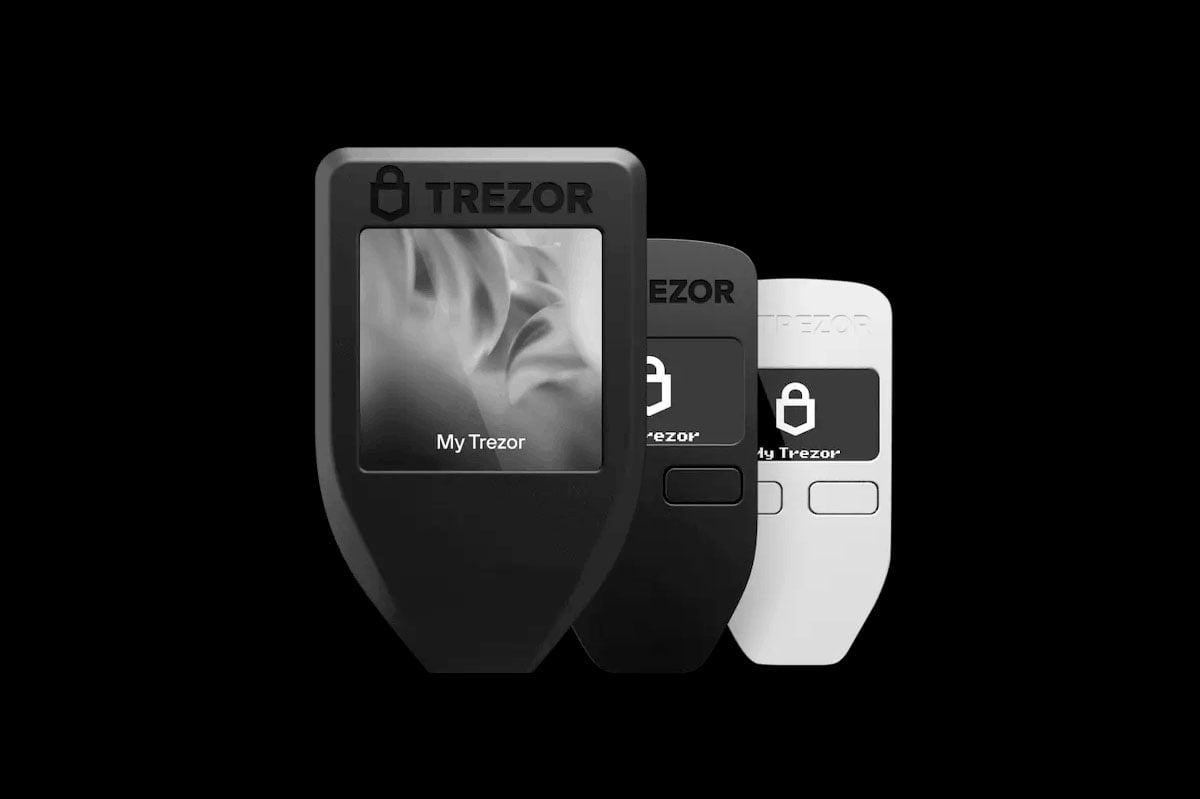

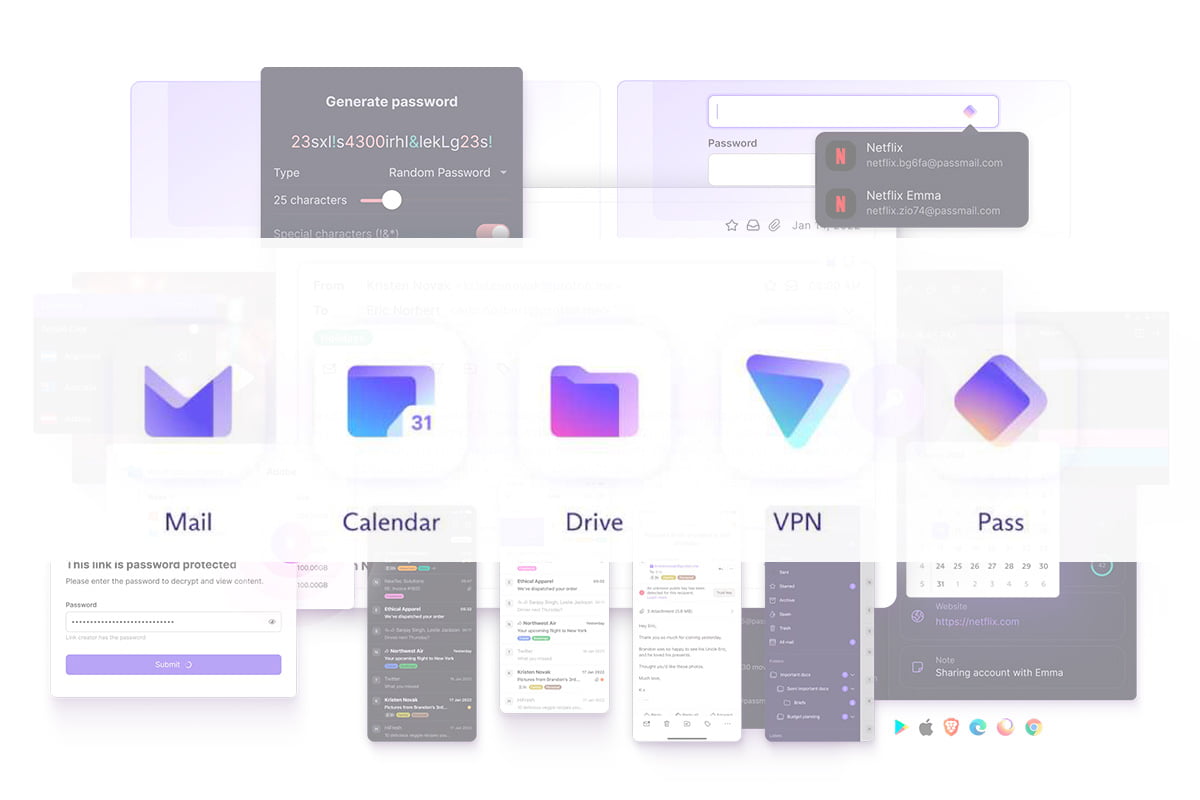


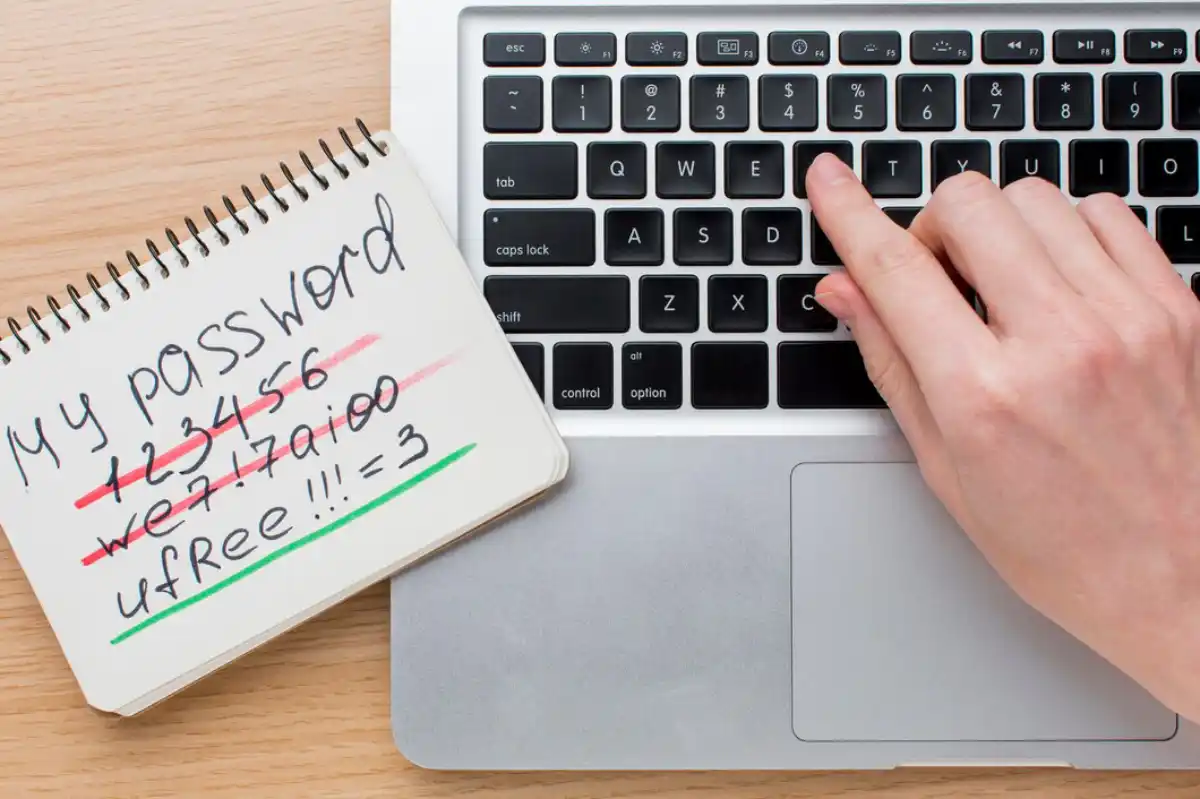



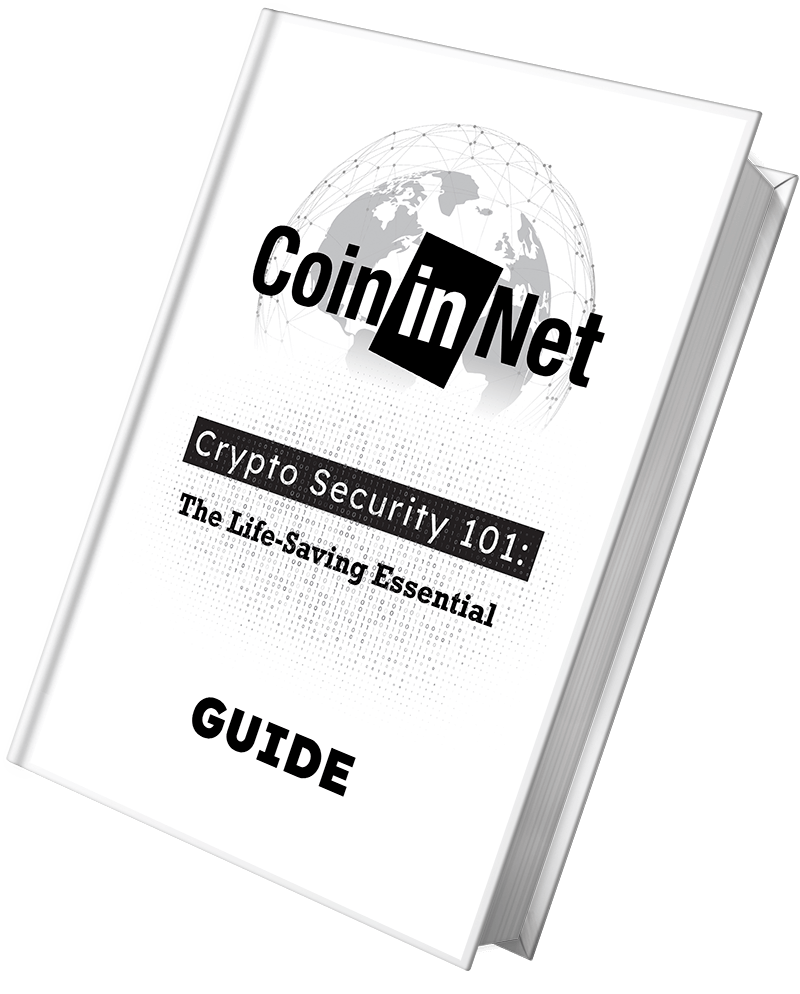
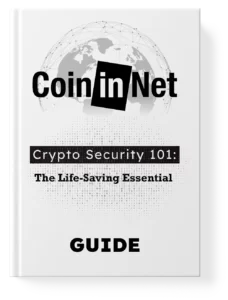 Don't Let Scammers Win! Discover The Ultimate Defence Strategies For Your Digital Wealth & Secure Your Crypto Future - Now!
Don't Let Scammers Win! Discover The Ultimate Defence Strategies For Your Digital Wealth & Secure Your Crypto Future - Now!